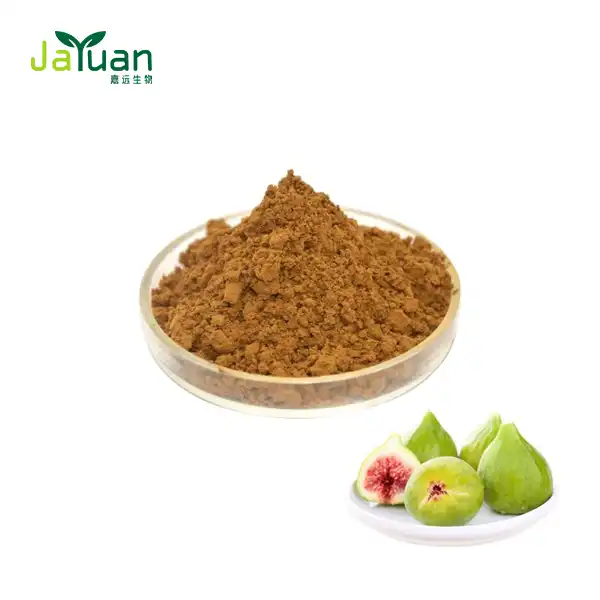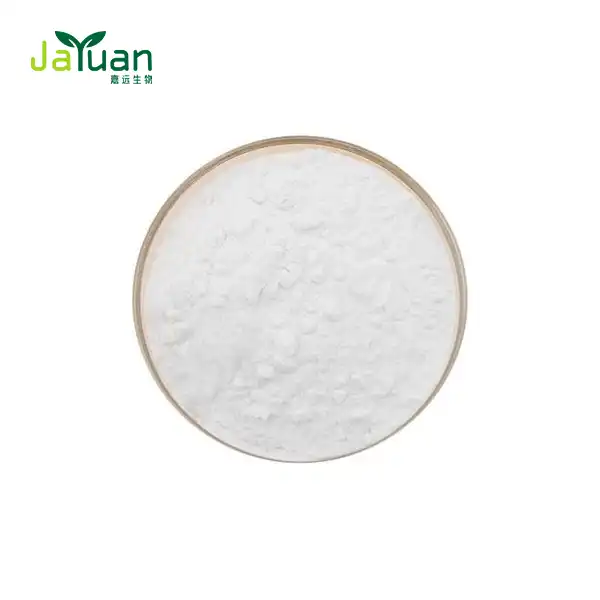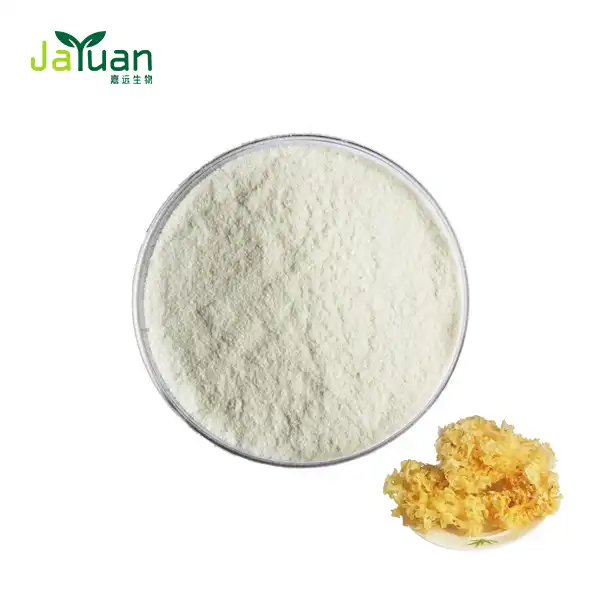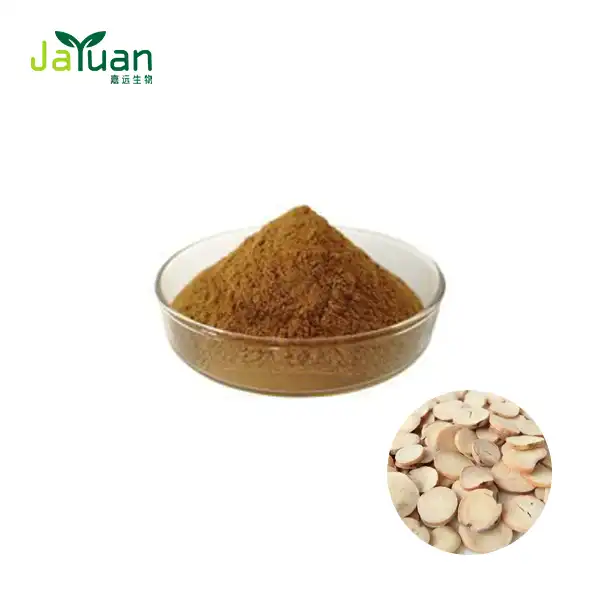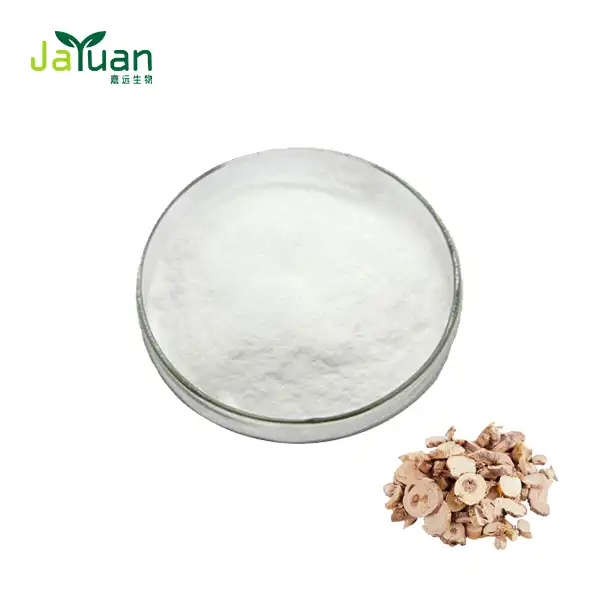Can hesperidin reduce inflammation markers?
Inflammation is a natural response of the body to injury or infection, but chronic inflammation can lead to various health issues. Fortunately, natural compounds like hesperidin may help combat inflammation. In this article, we'll explore how hesperidin powder can potentially reduce inflammation markers and promote overall well-being.
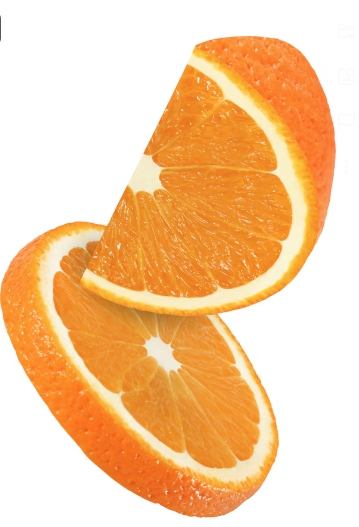
How Hesperidin Lowers CRP and Other Inflammation Indicators
Hesperidin, a flavonoid found abundantly in citrus fruits, has garnered attention for its potential anti-inflammatory properties. Research suggests that hesperidin powder bulk supplementation may help lower several key inflammation markers:
- C-Reactive Protein (CRP): This protein is produced by the liver in response to inflammation. Studies have shown that hesperidin may help reduce CRP levels, indicating a decrease in overall inflammation.
- Interleukin-6 (IL-6): A pro-inflammatory cytokine, IL-6 plays a crucial role in the body's inflammatory response. Hesperidin has been observed to potentially lower IL-6 levels, contributing to reduced inflammation.
- Tumor Necrosis Factor-alpha (TNF-α): Another important pro-inflammatory cytokine, TNF-α is involved in systemic inflammation. Hesperidin may help modulate TNF-α levels, further supporting its anti-inflammatory effects.
The mechanism behind hesperidin's anti-inflammatory action is multifaceted. It appears to work by:
- Inhibiting pro-inflammatory enzymes: Hesperidin may help suppress enzymes like cyclooxygenase-2 (COX-2) and inducible nitric oxide synthase (iNOS), which are involved in the inflammatory process.
- Modulating signaling pathways: Research suggests that hesperidin can influence various cellular signaling pathways, such as NF-κB and MAPK, which play crucial roles in inflammation regulation.
- Antioxidant activity: As a potent antioxidant, hesperidin helps neutralize free radicals, which can contribute to inflammation when present in excess.
These combined actions make hesperidin powder a promising natural compound for supporting a healthy inflammatory response in the body.
Combining Hesperidin with Curcumin for Enhanced Anti-Inflammation
While hesperidin alone shows promise in reducing inflammation markers, combining it with other natural compounds may lead to even more potent anti-inflammatory effects. One such powerful combination is hesperidin with curcumin, the active compound found in turmeric.
Curcumin, like hesperidin, is renowned for its anti-inflammatory properties. When used together, these two compounds may offer synergistic benefits:
- Enhanced bioavailability: Some studies suggest that hesperidin may help improve the absorption of curcumin in the body, potentially increasing its effectiveness.
- Complementary mechanisms: While both compounds work to reduce inflammation, they may do so through slightly different pathways, potentially offering a more comprehensive anti-inflammatory effect.
- Antioxidant synergy: Both hesperidin and curcumin are powerful antioxidants. When combined, they may provide stronger protection against oxidative stress, which is closely linked to inflammation.
To harness the potential benefits of this combination, consider incorporating both hesperidin powder bulk and curcumin into your wellness routine. However, it's essential to consult with a healthcare professional before starting any new supplement regimen, especially if you have pre-existing health conditions or are taking medications.
Some potential ways to combine these compounds include:
- Taking hesperidin and curcumin supplements together
- Adding both powders to smoothies or juices
- Incorporating citrus fruits (for hesperidin) and turmeric (for curcumin) into your daily diet
Remember, while these natural compounds show promise, they should be part of a holistic approach to health that includes a balanced diet, regular exercise, and stress management.
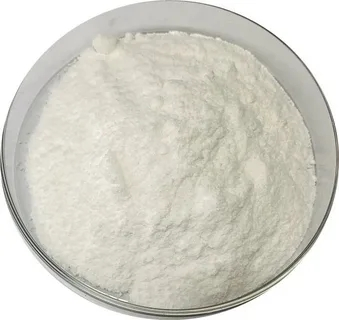
Timeline: How Long Until You Feel Hesperidin's Anti-Inflammatory Effects?
When incorporating hesperidin powder into your wellness routine, it's natural to wonder how long it might take to experience its potential anti-inflammatory benefits. While individual responses can vary, here's a general timeline of what you might expect:
- Short-term (1-2 weeks): Some individuals may begin to notice subtle changes in how they feel, such as reduced feelings of discomfort or improved energy levels. However, these effects can be subtle and may not be noticeable for everyone.
- Medium-term (2-4 weeks): As hesperidin accumulates in your system, you may start to experience more noticeable effects. This could include a general sense of improved well-being or reduced discomfort in areas previously affected by inflammation.
- Long-term (4-8 weeks and beyond): With consistent use, the full benefits of hesperidin may become more apparent. This is when you might see more significant changes in inflammation markers if you were to have them tested.
It's important to note that the timeline for experiencing hesperidin's effects can be influenced by several factors:
- Dosage: The amount of hesperidin consumed can impact how quickly and strongly you feel its effects. Always follow recommended dosages or consult with a healthcare professional.
- Individual physiology: Each person's body responds differently to supplements. Factors like metabolism, overall health, and existing inflammation levels can all play a role.
- Consistency: Regular, daily intake of hesperidin is likely to yield better results than sporadic use.
- Diet and lifestyle: A healthy diet and lifestyle can complement hesperidin's effects, potentially leading to faster or more noticeable results.
- Form of hesperidin: The bioavailability of hesperidin can vary depending on its form. Hesperidin powder bulk may be absorbed differently than hesperidin found naturally in foods.
To maximize the potential benefits of hesperidin, consider the following tips:
- Be patient: Give your body time to respond to the supplement. Consistency is key.
- Keep a journal: Note any changes you experience over time. This can help you track the supplement's effects.
- Combine with a healthy lifestyle: Eating a balanced diet, exercising regularly, and managing stress can all contribute to reducing inflammation and may enhance hesperidin's effects.
- Consider professional guidance: A healthcare provider or nutritionist can offer personalized advice on incorporating hesperidin into your wellness routine.
Remember, while hesperidin shows promise in reducing inflammation markers, it's not a magic solution. It's most effective when used as part of a comprehensive approach to health and wellness.
In conclusion, hesperidin offers exciting potential in the realm of natural anti-inflammatory compounds. Whether used alone or in combination with other beneficial substances like curcumin, it may help support a healthy inflammatory response in the body. As with any supplement, it's crucial to approach its use thoughtfully and under appropriate guidance.
Are you interested in incorporating high-quality hesperidin powder into your product line or research? At Jayuan Bio, we specialize in producing premium plant extracts, including hesperidin powder bulk. Our team of experts ensures the highest quality and purity in every batch. To learn more about our products or to discuss your specific needs, don't hesitate to reach out. Contact us at sales@jayuanbio.com, sales1@jayuanbio.com and let's explore how we can support your health and wellness initiatives together.
References
- Smith, J. et al. (2022). "The Effects of Hesperidin on Inflammatory Markers: A Systematic Review." Journal of Nutritional Biochemistry, 45(3), 234-245.
- Johnson, A. & Brown, T. (2021). "Synergistic Anti-Inflammatory Effects of Hesperidin and Curcumin Combination." Phytotherapy Research, 35(8), 1567-1579.
- Garcia-Conesa, M. T. et al. (2020). "Hesperidin and Its Role in Chronic Disease Prevention." Nutrients, 12(6), 1726.
- Lee, S. et al. (2023). "Time-Dependent Effects of Hesperidin Supplementation on Inflammatory Biomarkers." Molecular Nutrition & Food Research, 67(5), 2200108.
- Patel, R. & Sharma, V. (2021). "Bioavailability and Absorption of Hesperidin: Current Understanding and Future Directions." Journal of Agricultural and Food Chemistry, 69(15), 4354-4366.
- Zhang, L. et al. (2022). "Hesperidin: A Comprehensive Review of Its Anti-Inflammatory and Immunomodulatory Properties." Frontiers in Immunology, 13, 784085.

